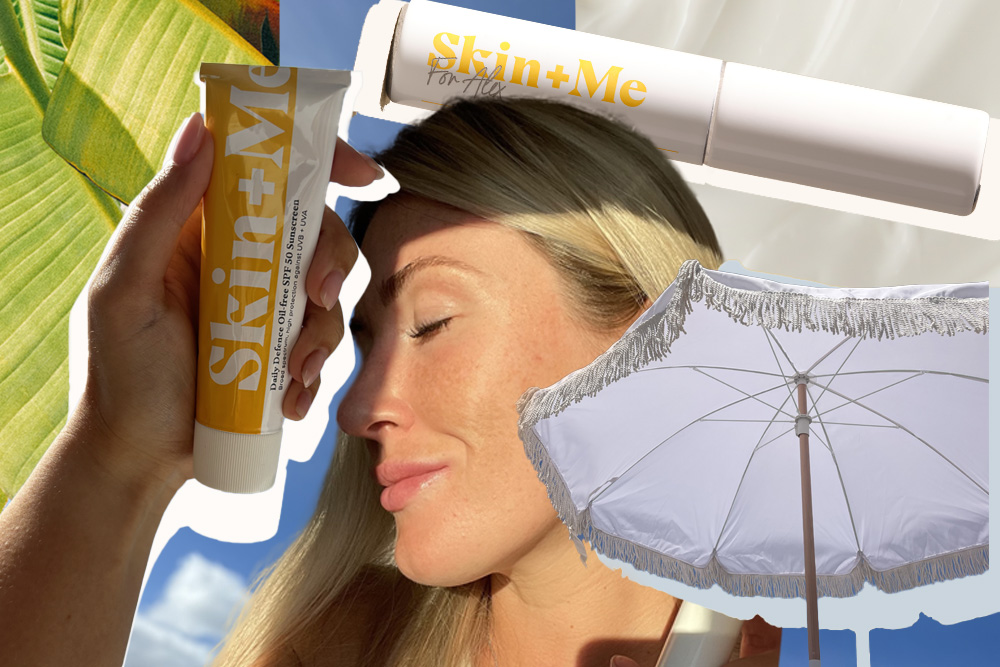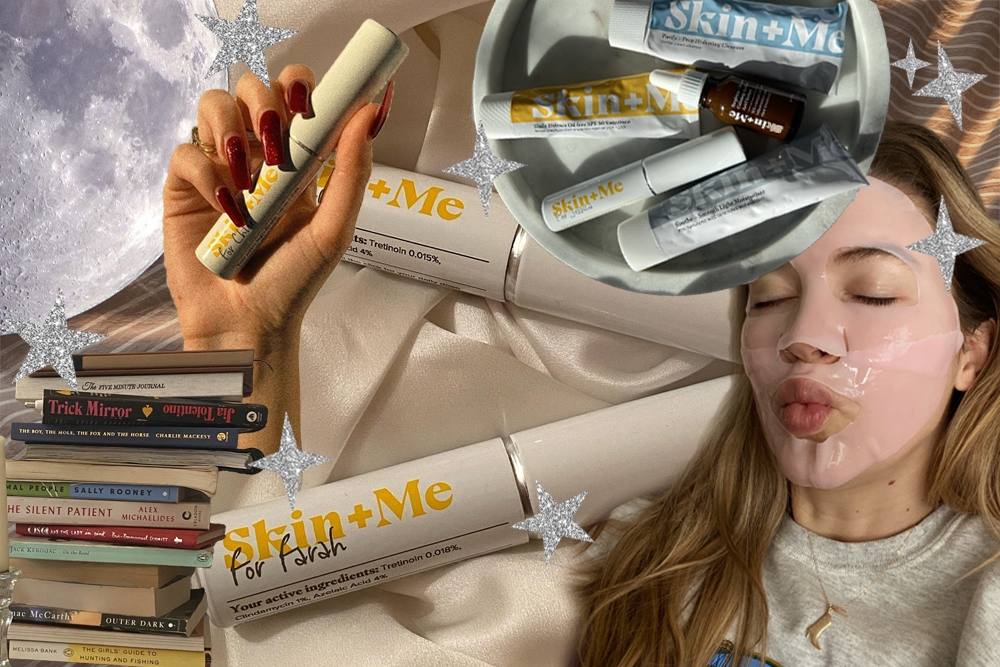Melasma 101

Link to share article here:
What Makes A Good Sunscreen Great?
What is every Dermatologist’s number one rule for healthy skin? Year-round broad-spectrum sunscreen. Every day. Indoors and out. When the sun is blazing and the rain is pouring. Sun damage doesn’t discriminate when it comes to the weather. UV light can penetrate clouds, and damage can show up cumulatively over many years.
Protecting your skin from the sun’s harmful UVA and UVB rays not only reduces the risk of developing skin cancer, it’s also your first line of defence when it comes to slowing skin-ageing and developing conditions like hyperpigmentation and melasma.
Now we know sunscreen is essential. How do we go about choosing the best one for us?
Should I pick mineral or chemical sunscreen?
First up, you have the choice of chemical or mineral sunscreen formulations. Often you’ll find sunscreens that are a blend of both. Our Head of Medical, Dr Jason Thomson sums up the science behind the ingredients, “Sunscreens work by using a blend of ingredients that filter out the sun’s damaging UV rays (UVA and UVB). There are a variety of different filters used in sunscreens and they are split into chemical and mineral filters which work in different ways to protect our skin.”
“Broadly, chemical sunscreen filters absorb UV light and convert it into heat and include ingredients such as octinoxate and avobenzone. Mineral sunscreen filters are compounds such as zinc oxide and titanium dioxide that reflect and scatter UV light – although recent studies have shown that they do absorb UV light, particularly when micronised (made into smaller molecules).”
Mineral sunscreens are sometimes preferred by people who want protection immediately, as they don’t need to be absorbed. However, they can sometimes leave a white cast on the skin, especially on deeper skin types.
Our very own Skin + Me Daily Defence Oil-free SPF 50 Sunscreen is a chemical sunscreen, so it can suit all skin types and tones. Find out more about it here, or add a tube to your next box here.
Both chemical and mineral sunscreens have advantages, with chemical formulations becoming increasingly elegant and scientifically advanced in recent years.
How much sunscreen should I use?
Remember to apply your sunscreen liberally and often. If you’re applying sunscreen on your face as part of your morning routine, you need at least two fingers-worth of product to get enough coverage.
Again, Dr Jason Thomson explains how important it is to get your SPF and coverage levels right: “Most people don’t apply enough sunscreen to get anywhere near the SPF advertised on the bottle with studies showing that most of us apply less than a half of the required amount. Dermatologists will generally recommend using a broad spectrum sunscreen (which means it protects against UVA and UVB rays) with at least SPF 30 and a 4 or 5 star UVA rating.”
What makes a good sunscreen great
Want a steer on what else to look for in your sunscreen? Here’s a round-up of the additional benefits your bottle can give you, or when you’re searching the skincare shelf, what makes a good sunscreen great:
Sunscreen with a high sun protection factor (SPF 30+)
The level of protection you choose matters. It’s good news if your existing day cream has added sunscreen (you’ll see many on the shelf with a token SPF 15), but on balance it’s best to use (or layer) a higher factor sunscreen with additional moisturising ingredients. Our Consultant Dermatologist, Dr Malvina Cunningham explains:
“If you’re interested in ageing well, I always recommend that you wear a broad spectrum SPF of at least factor 30 every day and even indoors. UV exposure is thought to be responsible for 80% of the visible signs of ageing and the main culprit, UVA light, penetrates through glass.”
It’s also especially important that you wear sunscreen if you’re using active ingredients, as some of them can make your skin photosensitive. That’s why we made sure that our Daily Defence Sunscreen was SPF 50, so it would provide plenty of protection.
“I recommend wearing sunscreen even if you’re sitting in the office all day and by a window,” Dr Malvina continues. “The formulations are so nice nowadays, I layer them under makeup.”
“If you’re interested in ageing well, I always recommend that you wear a broad spectrum SPF of at least factor 30 every day and even indoors.”
dr malvina cunningham
Sunscreen that pairs well with makeup and doesn’t pill
And that brings us to our next ‘great to have’ – if you wear makeup, even if it’s an occasional dusting of bronzer or smudge of highlighter, you want a sunscreen that plays ball with all your favourite cosmetics. Something that’s feather-light and a universal formulation that works for everyday use.
Daily Defence has been specially designed to work alongside your makeup, doubling up as a primer so you can get protection and a smooth base all in one.
A note on skincare pilling: Some cosmetics are more likely to pill than others when mixed. As a rule of thumb, combining water-based and oil-based products in quick succession means they’re more likely to pill.
Sunscreen that suits your skin type and is non-pore blocking
Spoiler: Great sunscreen won’t give you dull skin or breakouts. If you’re prone to acne, look for non-pore blocking formulations – you might see this also called non-comedogenic formulations – like Daily Defence, which is oil-free. It goes without saying, apply your sunscreen with clean hands and cleanse well each evening.
Remember, the sun damage you risk by going without sun protection will always outweigh any concerns about sunscreen and spots. And a BIG reassurance here that the healthiest skin is the best protected skin.
If you’re prone to acne, look for non-pore blocking formulations (you might see this also called non-comedogenic formulations).
Sunscreen with supportive active ingredients
Layering sunscreen over your daily moisturiser should be part of your morning routine. A great sunscreen may include additional actives such as superstar humectant, hyaluronic acid – an oil-free hydrating ingredient to keep skin plump and glowing. In Daily Defence we included nourishing vitamin E, to give your skin barrier a protective boost, and niacinamide to regulate oil regulation and boost cell rejuvenation.
A final reminder from Dr Jason Thomson, “Remember, sunscreen is only one tool in your armoury against the sun’s damaging rays and no sunscreen is 100% effective. Good sun behaviour also includes wearing protective clothing, sunglasses and seeking shade between 11am and 3pm.”
In summary, choose a great sunscreen, be smart with your daily skincare and sun behaviour to keep your future skin happy.
You might also like…
New to Skin + Me? Get your first month of personalised skincare for £4.99 with promo code DOSE – complete our quick consultation here.
Looking for a routine refresh? Add the Dream Routine to your Skin + Me subscription.
In need of a restock? Head to The Skincare Shop for one-off purchases of your Routine Essentials.



